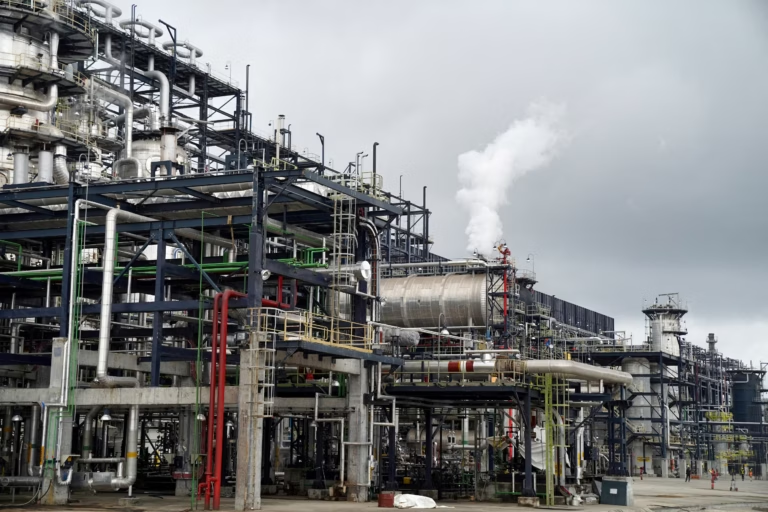Dangote Industries Limited has reaffirmed its commitment to developing ancillary industries and deepening Nigeria’s self-sufficiency across critical sectors, including petroleum refining, agriculture, cement production, and mining.
At the ongoing 36th Enugu International Trade Fair, Dr. Abayomi Shittu, Regional Sales Director for Southeast Dangote Cement, spoke with the News Agency of Nigeria (NAN), stressing that the Dangote Petroleum Refinery will not only serve as a vital source of refined fuels but also as a catalyst for industrial development across the nation.
Driving Growth Through Ancillary Industries
Ancillary industries—such as pipeline infrastructure, petrochemical plants, fuel retailing, and transportation logistics—are poised to flourish in Nigeria as the Dangote Refinery gains momentum. According to Shittu, these complementary sectors will benefit from the refinery’s presence by creating a ripple effect of industrial activity.
“The refinery will spur the emergence of many supporting industries, strengthening Nigeria’s industrial backbone and ensuring long-term economic growth,” Shittu said.
Commitment to Nigerian Industrialization
Dangote Industries has a diversified portfolio that spans:
- Cement (Dangote Cement Plc.)
- Sugar (Dangote Sugar Refinery Plc.)
- Salt (NASCON Allied Industries Plc.)
- Fertilizer, poly products, steel, agriculture, real estate, and logistics
These subsidiaries, several of which are listed on the Nigerian Stock Exchange, have not only fueled economic development but also generated employment for thousands, especially through schemes like the sugar refinery’s out-grower program for farmers.
Shittu also highlighted the Dangote Fertilizer plant’s impact on transforming agriculture by improving crop yields and reducing Nigeria’s dependence on imported fertilizer.
Developing Human Capital
In line with its industrial goals, Dangote Industries continues to invest in human capital, recruiting and training engineering and technology graduates to operate and maintain its massive infrastructure network. This effort is geared toward sustaining local expertise and long-term productivity in Nigeria’s industrial sector.
Enugu Trade Fair and Regional Expansion
Shittu applauded the Enugu Chamber of Commerce, Industries, Mines, and Agriculture (ECCIMA) for organizing the trade fair, describing it as a vital economic platform in the Southeast and South-South regions.
“Enugu remains a strategic location with a high concentration of industries. Trade fairs like ECCIMA’s allow companies like ours to build direct relationships with regional consumers and partners,” he added.
Global Impact of Dangote Refinery
The Dangote Petroleum Refinery, one of the largest in Africa, is already disrupting the global fuel supply chain by exporting diesel, jet fuel, and petrol to countries in Africa and Europe. Reports by Nairametrics indicate that its exports are threatening the survival of some European and American refineries due to cost competitiveness.
Despite producing enough to meet domestic demand, Nigeria continues to import petroleum products, a situation that has sparked a legal battle between Dangote Industries and the Nigerian Midstream and Downstream Petroleum Regulatory Authority (NMDPRA) over the country’s import policies.
Looking Ahead
Dangote’s vision to make Nigeria self-reliant in energy and manufacturing is gradually unfolding. Through strategic investments, industrial innovation, and support for local talent, the conglomerate is reshaping Nigeria’s economic landscape, one refinery at a time.
The refinery’s impact, both local and global, positions it not just as a fuel producer, but as a key driver of industrialization and economic empowerment in Nigeria.

